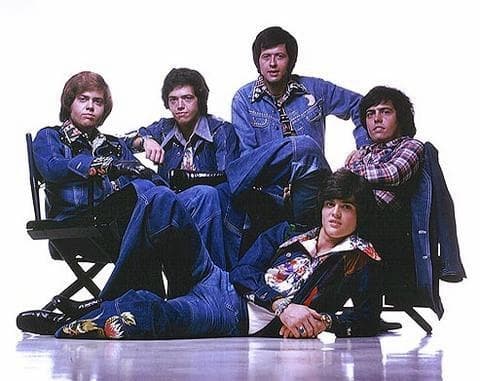
The Scrutiny of a Higher Power: A Teen Idol’s Deep Dive into Faith and Judgment
The Osmonds’ most ambitious—and arguably strangest—album, 1973’s concept record The Plan, yielded the fascinating and little-known track, “Movie Man,” a psychedelic-tinged rock commentary on divine judgment and accountability.
For those of us who grew up with the sounds of The Osmonds echoing from our transistor radios, the very name conjures up vivid memories of clean-cut smiles, wholesome family entertainment, and a string of pure pop perfection like “One Bad Apple” and “Puppy Love.” Yet, as the 1970s wore on, this Utah-based family quintet yearned to prove their musical maturity and shed the “bubblegum” label that both defined and confined them. Their vehicle for this transformation was the 1973 album, The Plan, a surprisingly ambitious progressive-rock concept album designed to explain the tenets of the Church of Jesus Christ of Latter-day Saints (Mormon faith) to a secular audience. Within this bold experiment lies “Movie Man,” a track that, while never achieving the smash commercial success of their earlier hits, stands as a testament to the group’s willingness to take a radical creative risk.
The Audacity of The Plan and the Song’s Placement
Unlike the album’s two charting singles, “Goin’ Home” and “Let Me In”—which both peaked at number 36 on the Billboard Hot 100—“Movie Man” was released as a single in some international markets but did not chart on the main Billboard Hot 100 or UK Singles Chart, marking it as one of their more obscure yet artistically significant cuts. This lack of chart success in the US highlighted the commercial challenge of their drastic shift in sound and subject matter.
The sheer ambition of The Plan was revolutionary for a teen-idol group. It was conceived by the brothers, most notably Alan Osmond, who even took a rare turn on lead vocals for this experimental piece. The entire album was written while the band was relentlessly touring, intended as both a declaration of faith and a kind of artistic rebuttal to critics who dismissed them as mere puppets. “Movie Man,” in particular, deals with a core doctrinal concept: the idea of a life review, or the belief that an individual’s every action and thought in life is recorded and played back for all to see at the day of judgment. The “Movie Man” is a metaphor for a divine power—often interpreted as God or the devil’s agent—who holds the record of your deeds, ready to project them onto a cosmic screen.
The lyrics are strikingly dark and almost theatrical for The Osmonds: “You laugh and you smile, try to run away, don’t you know what you do you might regret one day? There is one who has eyes on your evil ways, the Movie Man.” The song creates a chilling, almost carnival-esque atmosphere, driven by a quirky synth line and an unusual, driving rhythm that sounds more akin to progressive rock bands like The Moody Blues or Gentle Giant than the polished pop of their teen-idol peak. It embodies the ‘prog-rock’ sound the brothers were exploring, using a bizarre, almost Lucifer-like character to deliver the message of inescapable, divine accountability.
For older readers, this song evokes a deeper reflection on the tumultuous early 70s. It was a time when youth culture was rapidly changing, and for a wholesome act like The Osmonds to confront existential, religious themes through the loud, sometimes cynical medium of rock music was an act of sincere rebellion. It’s a nostalgic journey back to an era where a family group could risk their massive celebrity to put their deepest spiritual beliefs on wax. “Movie Man” isn’t just a song; it’s a profound, if forgotten, moment of authenticity. It captures the struggle of young men trying to reconcile incredible fame and the pressures of the entertainment machine with a deeply held, conservative faith, using their art to deliver a sermon wrapped in a unique rock-and-roll package. It remains a fascinating listen, a jarring yet heartfelt moment that reminds us the pop idols of our youth were people searching for meaning just like the rest of us, even if that search led to one of the most eccentric records of the decade.